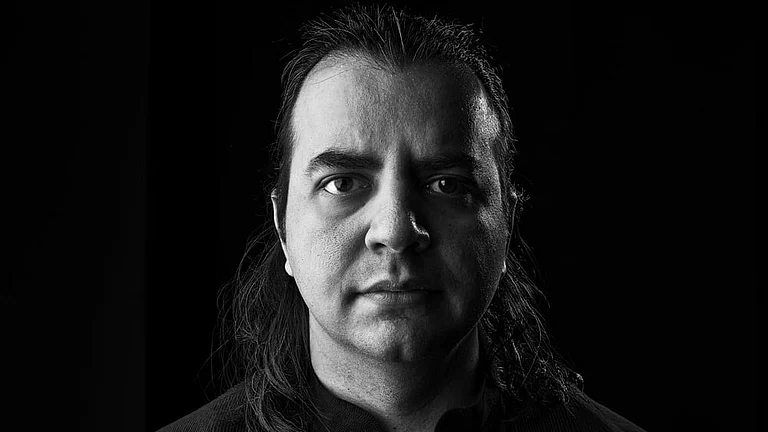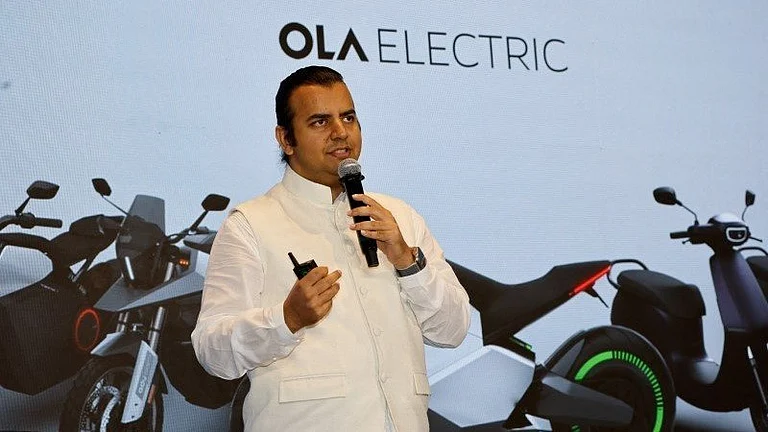In the mythic land where the sun of opportunities never sets. Where the ever-young run at hectic pace towards the fountain of success. Where life is measured in excel sheets of revenue, valuation and growth. Where every dimension of life is funnelled into a channel called entrepreneurship. Where unicorns are spotted every now and then. In that land lives a strange being: the founder.
What makes him tick? I keep asking every founder I meet. While everyone says it in different ways, they all say the same thing: obsession. An obsession to solve for millions, an obsession for the adrenaline rush one gets to see their idea take shape and an obsession for money—enough to never have to think about money again.
To satiate that obsession, one needs speed. An uncommon speed. And uncommon speed needs uncommon people.
Bhavish Aggarwal is an uncommon person. From building and running three unicorns to taking on the big daddies of the automotive industry to standing up to investors, Aggarwal has proved that he is anything but a regular 39-year-old. He is brash, he is brilliant, he is so much more. He is obsessed with efficiency. He sets impossible targets and then meets them.
In his pursuit, he offends many. But he doesn’t care.
He has been heard telling his employees that they are not at Ola “to have a good time” but to build the future. His candour is striking. He doesn’t feel the need to justify himself. He truly believes that his conviction and hard work can propel his company to global manufacturing stardom. Is that belief the masculine innocence of a maverick? Or is it the confidence of a wily businessman? Even an hours-long meeting with Aggarwal will not answer that question.
A close look at his journey reveals what motivates young Indians to start up. The explanation is as psychological as it is sociological. Aggarwal is representative of that sliver of the Indian middle class that grew up on stable incomes and was allowed to dream big. The pursuit of the dream is overarching, all consuming. Aggarwal says he believes in the ancient Indian concept of tapasya. But his motivation may lie more in the protestant work ethic that is at the heart of industrial capitalism where hard work guarantees salvation.
Bhavish Aggarwal is a disruptive entrepreneur at a time when disruptive entrepreneurs are cultural icons. He takes that position seriously. Even though Aggarwal is rare, he isn’t unique. Many mavericks have come before him, and then faded into obscurity. Like in Greek tragedies, they have been destroyed by their hamartia: the affinity to take outsized risks till they were betrayed by agents both internal and external. Will Aggarwal buck that trend?
The successful listing of Ola Electric has shut his enemies up for now. But what Aggarwal must do is to bring his efficiency standards to his service stations. As a new age entrepreneur now in the public markets he must communicate his business risks better to all stakeholders, including the media.
Many say that to truly understand the psyche of a founder, I should be one. The odds of making a million dollars from Esops of a unicorn does seem alluring. Yet the vantage of a journalist observing the chaos from a distance is better, even if less financially rewarding. While I continue being a journalist, my medium is about to change.
It has only been four years since a once-in-a-lifetime pandemic changed our lives. Nothing has been the same ever again, including journalism. But I am sure this magazine will keep helping you ‘Think Beyond’ and ‘Stay Ahead’.











